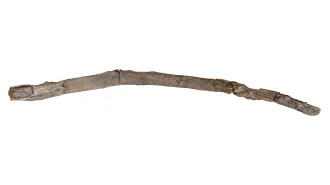Linguists in Siberia record dying tongues
From Seattle, at the American Association for the Advancement of Science Annual Meeting
Researchers trekking through remote Russian villages have identified and interviewed some of the last remaining speakers of two Turkic languages.
K. David Harrison of Swarthmore College in Pennsylvania and his colleague Gregory Anderson recently visited villages along the Chulym River in Siberia, where indigenous people once communicated in a language they call Ös and that Russians refer to as Middle Chulym. Only a few-dozen fluent speakers remain, and they tend to lapse into Russian in midsentence, even when addressed in Turkic dialects similar to their own, says Anderson. The linguists noted an unusually rich vocabulary of Ös words for fishing equipment and fish.
On past expeditions to a different part of Siberia, the researchers studied another moribund Turkic language, Tofa, which has many terms useful in herding reindeer. Tofa people no longer rely on herding as much as they once did, and they’re not including the words in their Russian lexicon.
By contrast, these people still practice subsistence fishing along the Chulym River. Nevertheless, Harrison sees no indication that they are retaining Ös fishing terms as they shift to speaking Russian. “When you lose a language,” he says, “you also lose specialized knowledge.”






